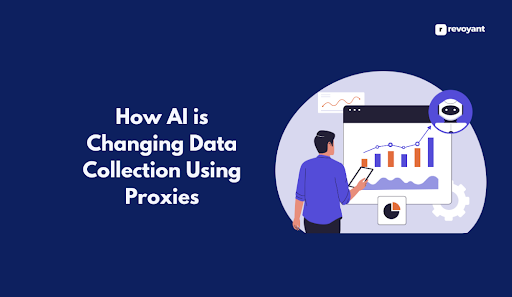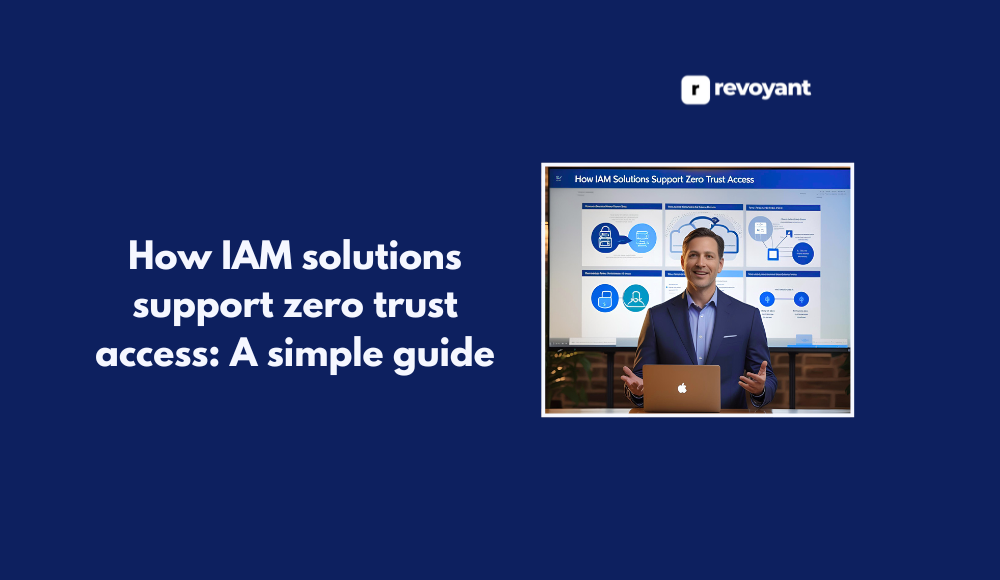Looking for answers online can feel confusing when you want something quick and clear. Many people run into this problem, and it can slow things down. An AI search engine uses smart technology to give better results.
In this blog post, you will find the best AI-powered tools and see how they make searching faster and easier. You might discover the right one that helps you today.
Key Takeaways
- AI search engines like ChatGPT, Andi, and Perplexity make searching online faster by understanding questions in natural language and giving clear answers.
- These tools rank information based on quality and relevance, using advanced AI to filter out low-quality content. This changes how people do SEO.
- Many AI search engines offer ad-free experiences and protect privacy, which is important for both general users and businesses.
- New trends like Generative Engine Optimization (GEO) are emerging as marketers adapt to how these engines work.
- Using simple queries and following up with more detailed questions can improve search results with AI tools.
Best AI Search Engines for General Use
I use AI search engines every day, and they save me time. They give quick answers without making things complicated, so I can keep moving forward with my work.
Andi: Simplifying searches with a user-friendly interface
Andi helps me find answers fast with its clear and simple interface. I like how it shows results without ads, making every search easy to read. Andi uses ai-powered search tools that understand my questions and give smart summaries in seconds.
Its clean layout cuts down distractions, so I focus on just the information or web pages I need.
This free ai search engine feels different from traditional ones like Google or Bing. It puts real-time source links right next to each answer, which builds trust quickly, a must for B2B research too.
Marketers see how this shapes SEO since content now needs to appeal both to users and advanced ai models behind modern engines. Andi makes asking complex queries feel simple while giving me direct paths for follow-up questions if needed.
Let’s look at ChatGPT Search next; it is changing what we expect from conversational ai-powered search engines today.
Most Advanced AI Model for Search
ChatGPT stands out with its conversational skills, making search easier and more natural—keep reading to see how it changes the way we ask questions online.
ChatGPT: Revolutionizing search with conversational AI
I use ChatGPT as a search engine because it helps me ask questions in plain language, just like talking to a person. This AI model from OpenAI runs on GPT-4o and answers complex queries step by step.
It goes further than showing a list of links by summarizing information or giving direct answers with source links for extra trust. I often type follow-up questions right after my first one, and ChatGPT keeps up, remembering what I asked before.
Many people use this tool for research or quick facts instead of traditional search engines such as Google Search or Bing. In 2025, more users shift to conversational AI tools for deeper context and richer insights, especially since they are ad-free and keep privacy safe.
Businesses benefit too; marketers now need new skills like Generative Engine Optimization (GEO) alongside classic SEO since AI models change how content gets found online. With powerful generative artificial intelligence at the core, this chatbot is shaping how I explore data across web pages today.
Best for Targeted or Category-Specific Searches
If you want answers for a specific topic, AI search engines now help you find exactly what you need. You can quickly ask about one area, and get fast, focused results that really match your question.
Komo: Delivering precise results for niche queries
Komo uses strong AI tools to give clear results for focused or special queries. I spot a big shift in how Komo helps users with needs that standard search engines, like Google, often miss.
This AI-powered search engine gives context-rich answers with speed and detail. For example, if I look for advice on rare tech tools or unique business models in the United States, Komo pulls up recent news, research papers, and even niche blog posts without showing ads.
AI is changing how B2B buyers do research too; quick trust matters now more than ever. Marketers must craft content for both SEO and GEO so their work will stand out in this new type of search engine experience.
As Google’s own AI Mode grows stronger in 2025 searches, I see a need to focus on using precise keywords and supplying clear answers for machines like Komo to find easily. Now it makes sense to check out custom solutions built just for businesses with You.com next.
Best for Custom Business Search Solutions
Some search engines now focus on meeting business needs, offering smart features and more control over data. With these tools, I can create a search experience that fits different work goals and team demands.
You.com: Tailoring searches for enterprise needs
You.com gives me a strong AI-powered search engine for business use. I can set up searches by topic, team, or even privacy level. The platform uses powerful AI models to find and organize data from my favorite tools like Google Workspace or Microsoft 365.
With ad-free results and tight privacy controls, it works well in fields where keeping data safe matters most.
You.com helps companies keep pace with changes in SEO and generative AI trends too. Marketers learn fast how GEO joins classic SEO and why fresh content needs to build trust right away.
I use You.com’s smart interface to search documents or emails across services without leaving my browser window—saving time on busy days.
Perplexity now comes into play for anyone who wants real-time news updates through an easy chat format.
Best for Exploring News and Current Topics
Perplexity uses strong AI capabilities that keep me up to date with news and trending topics, so I suggest reading further if you want to stay informed on what’s happening right now.
Perplexity: Keeping users informed with real-time updates
I use Perplexity for quick, live updates on news and topics that matter to me. It works as an AI search engine that gives answers pulled from the latest online sources, not just old web pages.
I see source links next to each answer, so I can check facts myself. Since information changes fast, this tool helps keep my research current.
Perplexity stands out by using large language models and generative AI to give clear summaries in plain language. Unlike some traditional search engines or even Google’s standard mode, it handles follow-up questions well and offers new data as soon as it is available online.
For anyone who needs up-to-date details—like during breaking news or industry shifts—it helps me stay informed without cluttered ads or outdated results.
Why AI Search Engines Are Reshaping the Search Landscape
AI-powered search engines like Google’s AI Mode, ChatGPT, Copilot, and Perplexity change how I find and use information. These tools use advanced AI models to look at the context of my question.
Then they give smart answers instead of just a list of links. For example, when I ask about news or research on B2B buyer habits in 2025, an AI search engine understands what matters most and brings up recent studies or trusted sources.
SEO is changing too. Now there is SEO for AI search and even Generative Engine Optimization services (GEO). As marketers shift their strategies for both Google’s old model and new generative tools, content needs to build trust fast—especially with buyers who scan results quickly.
With more features like ad-free experiences and natural language chat from platforms such as you.com or Andi, my searches feel faster and deeper than ever before. This shift creates fresh challenges for digital leaders but also gives me better control over how I gather reliable data online.
How AI Search Engines Select and Prioritize Sources
AI search engines use advanced algorithms to find and rank information on the web. I see them scan millions of web pages, news sites, documents, and even social media posts in seconds.
They pick sources based on quality, freshness, how often a source is mentioned by others, and how well it matches your question or search intent. Google’s AI Mode began shifting this process in 2023; now results are smarter and faster.
I notice that ChatGPT and tools like Perplexity focus on credible sources for deeper insights. These AI-powered search engines also try to filter out spam or low-trust content using large language models trained by companies like OpenAI or Microsoft Bing.
Marketers now need to think about both SEO for traditional searches and new Generative Engine Optimization (GEO) strategies as AI continues to change what shows up first in your browser search results page.
Practical Tips for Optimizing Your Search Experience With AI Tools
Source choice and order affect every search result. I use this knowledge to get the best out of AI-powered search engines. Clear queries help AI models find precise answers faster, especially on tools like ChatGPT or Perplexity.
Instead of long sentences, I break my questions into simple parts. For news or updates, I use Perplexity for real-time results in 2025.
I often try different keywords to see which ones give better answers. Features like natural language input in You.com or voice queries make searches more flexible on both MacOS and Microsoft Windows platforms.
Adding follow-up questions helps me refine results with tools like Copilot or Gemini (chatbot). Checking source links is key if I need reliable data for research; many top ai-powered search engines show sources right next to summaries, letting me verify facts fast.
Conclusion
AI search engines are changing how I find information online. Tools like ChatGPT, Andi, Perplexity, and You.com help me ask clear questions and get helpful answers fast. They also keep results fresh, relevant, and easy to understand.
Finding the right answer is simpler now with AI-powered searches. The future of looking things up feels smarter already!
FAQs
1. What are AI search engines?
AI search engines are digital platforms that use artificial intelligence to provide a more personalized and efficient search experience.
2. How do AI search engines elevate my search experience?
AI search engines enhance your searching by understanding your preferences, providing relevant results, and learning from your past searches. This makes the whole process faster and more accurate.
3. Which ones are considered the best AI Search Engines?
The “best” can vary based on individual needs but some popular choices include Google’s RankBrain, Microsoft’s Bing, and Yandex which all utilize sophisticated AI algorithms for improved user experiences.
4. Are there any drawbacks to using an AI-powered engine instead of a traditional one?
While AI-powered engines offer enhanced personalization and efficiency, they may sometimes show bias in their results based on past data inputs or limited diversity in training data sets.




